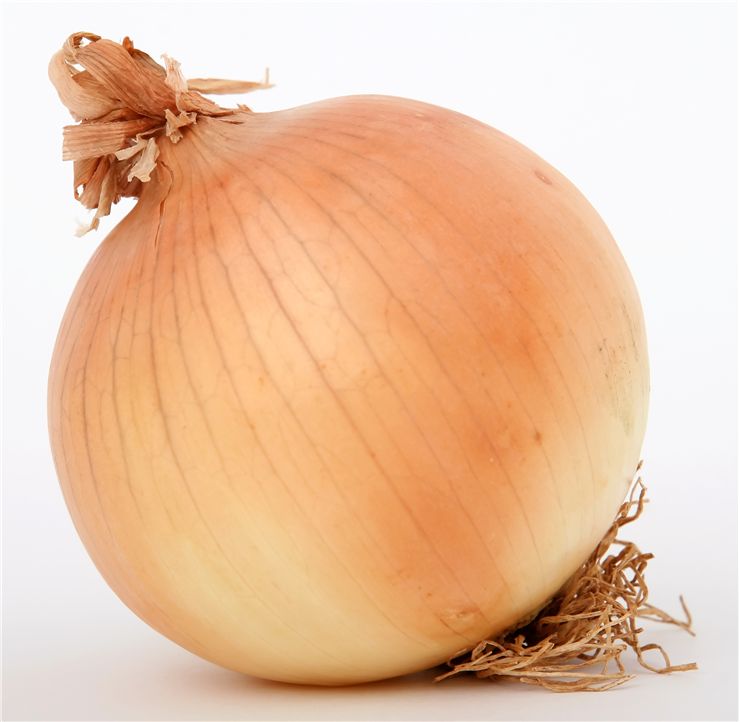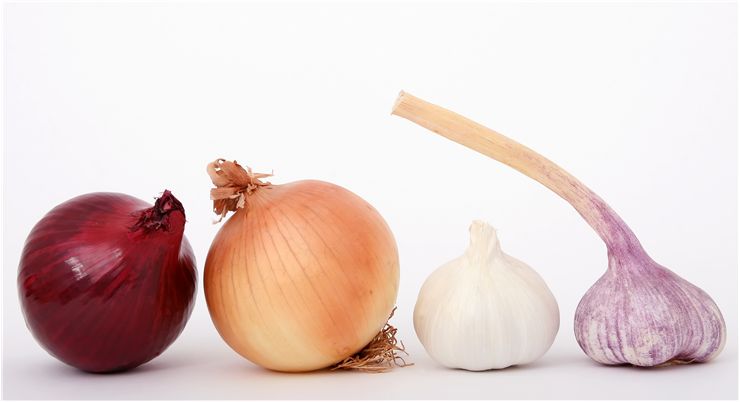Onion History - Origin and History of Onions
Onions are one of the oldest cultivated vegetables in our history, originating in central Asia from where it spread across entire world. Modern archeologist, botanist and historians are unable to determine exact time and place of their first cultivations (because this vegetable is perishable and its cultivation leaves little to no trace), however some written records enables us to paint a very interesting picture about its origins.
There are two schools of thoughts regarding the home of onion cultivation, and both look at the period 5,500 years ago in Asia. Some scientists believe that onion was first domesticated in central Asia and others in Middle East by Babylonian culture in Iran and West Pakistan. Those are of course based on ancient remnants of food cultivation that survived the tooth of time, but many believe that organized cultivation started much earlier, thousands of years before writing and sophisticated tools were created. Onions were grown in Ancient Egypt 5,500 years ago, in India and China 5,000 years ago, in Sumeria 4,500 years ago.

With organized onion cultivation starting around 3,500 BC, ancient civilizations that used them soon became really dependent on this great vegetable. Onions were easy to grow on any kind of soil, any type of weather ecosystem, and were easy to store, dry, and preserve during winters. The basic abilities of onion also proved to be very useful to Egyptians, Babylonians, Hindu and ancient Chinese civilizations who had problems to create large sources of food – onions prevented thirst, were great source of energy, had very useful medicinal properties, and could be easily dried and preserved for times when other perishable sources of food were scarce.
Because of all those benefits of onions, it was not strange to see that this vegetable quickly entered into religious ceremonies of several ancient civilizations. This was most apparent in Egypt, where onions were symbols of eternity, endless life and were part of burial ceremonies (especially during funerals of Pharaohs). Egyptians pained onions on the walls of their structures, pyramids, tombs, and were present in both ordinary meals, celebratory feasts and offerings to the gods. Onions were also important part of the famous Egyptian mummification process.
With all that popularity, Onion became more and more present in the written records of human history in 1st millennia BC and early centuries of AD. It was described several times by the Israelites in the Bible, celebrated by the Indian medical treatise Charaka Sanhita as one of the most important remedies for various heart, joint, digestion illnesses, and used heavily in Ancient Greece not only by physicians, but also by soldiers and athletes who believed onions gave them strength from gods (they consumed it raw, cooked, as juice and as rubbing oil). Romans also consumed large quantities of onion, taking it wherever they went, from Italy to Spain, Balkans, majority of Central Europe, and England. Excavations of destroyed city of Pompey which was overflowed by lava from Vesuvius revealed to modern scientist complex network of onion production that was described beforehand in the writing of many Roman historians.

After the fall of the Roman Empire, Europe entered into Dark and Middle ages where main sources of food for entire population were bens, cabbage, and onions. During that time, onion was heavily used as both food and medicinal remedy, and was often more valuable than money. With the arrival or Renaissance and the new trade routes of the Golden Age of Sail, onions were carried to all four corners of the world, enabling European colonist and native people from newfound continents to grow this incredible vegetable on countless soil types. According to some records, onions were the first vegetable that was ever planted by the first colonists who landed in North America.

